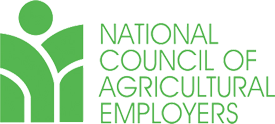This was a long, cold COVID winter.
From late January until middle of March, the temperature rarely peeked above 40 degrees. The sun rarely broke through an overcast sky and a steady wind blew from the Northwest in the DC area. My bicycle, leaning against the wall, languished from neglect.
But finally, a little bit of Spring’s promise poked its head out from the clouds and the wind simmered down too. The sunshine warmed my spirit as it warmed the surroundings.
Although it was only 42 degrees, the forecast said 45 was on the way! I pulled on winter gear, added air to my tires, filled my water bottle and cinched my helmet tight for my usual 20-mile ride. At last!
I tore up the streets and charged the Virginia hills filling my lungs with air that now did not burn my lungs with cold. I dodged other cyclists moving too slowly for my pace and cautiously avoided pedestrians on the path who were stretching their winter legs in glorious sunshine. A cardinal flitted past annoying a blue jay who leapt in pursuit and I even saw a racoon rustling through the leaves still awake from its nightly foraging.
I turned northwest past the airport and rode along the Potomac headed for home. It had been a terrific, quick ride and I felt melancholy to have it end so soon.
As I approached the Memorial Bridge underpass, I saw another cyclist emerge from it headed my way. The path right there is a little treacherous as tree roots have pushed up the asphalt creating a hazard if you have too much speed. The other rider seemed unaware.
Sure enough, I saw him hit those big bumps, lose control and tumble onto the asphalt, his momentum and the bike depositing him hard to the side of the path.
I hit my brakes and slowed, unclipping from my pedals. I hollered asking the other rider if he was okay, concerned because he was not moving.
I laid my bicycle down and ran over to the other cyclist, now somewhat relieved because he had rolled himself to his side. I repeated my query as to whether he was all right as I picked up his bike and he pulled himself to his feet, bleeding from scrapes to his legs, elbow, and forearm.
He finally said, “Yeah, I’ll be okay. What did I hit?”
I pointed out the bumps on the path partially obscured in the shade from the trees, just discernible in the sunlight. The other rider nodded, looked at me standing there still holding his bike and kind of sizing me up.
He said, “You’re not from around here, are you?”
I told him I lived just a couple of miles from there. The other rider said thank you and thanks for stopping. I asked if he was going to be all right and when he said yes, I hopped on my bike and continued toward home.
Over the last few miles, I thought about that incident and pondered why the other rider had thought I might not have been from around there. Then, it struck me.
Having been raised in farm and ranch country, it is just in our nature to always stop and help someone in a tough situation. Whether it might be someone who has had their car skid off the road in a snowstorm and you lend a hand getting them out of a drift or pitching in if someone must head to town to care for a sick relative but still needs to have irrigation water set. Helping one another is just something you do. Neighbors help neighbors.
In fact, Paul Harvey, the radio broadcaster from my youth talked of this rural American ethos in the iconic poem he delivered at the FFA Convention in Kansas City in 1978. Where Harvey said, in part, “God had to have somebody willing to ride the ruts at double speed to get the hay in ahead of the rain clouds and yet stop in mid-field and race to help when he sees the first smoke from a neighbor’s place. So, God made a farmer.”
And I am glad that he did. Neighbors help neighbors.
Pass it along.
